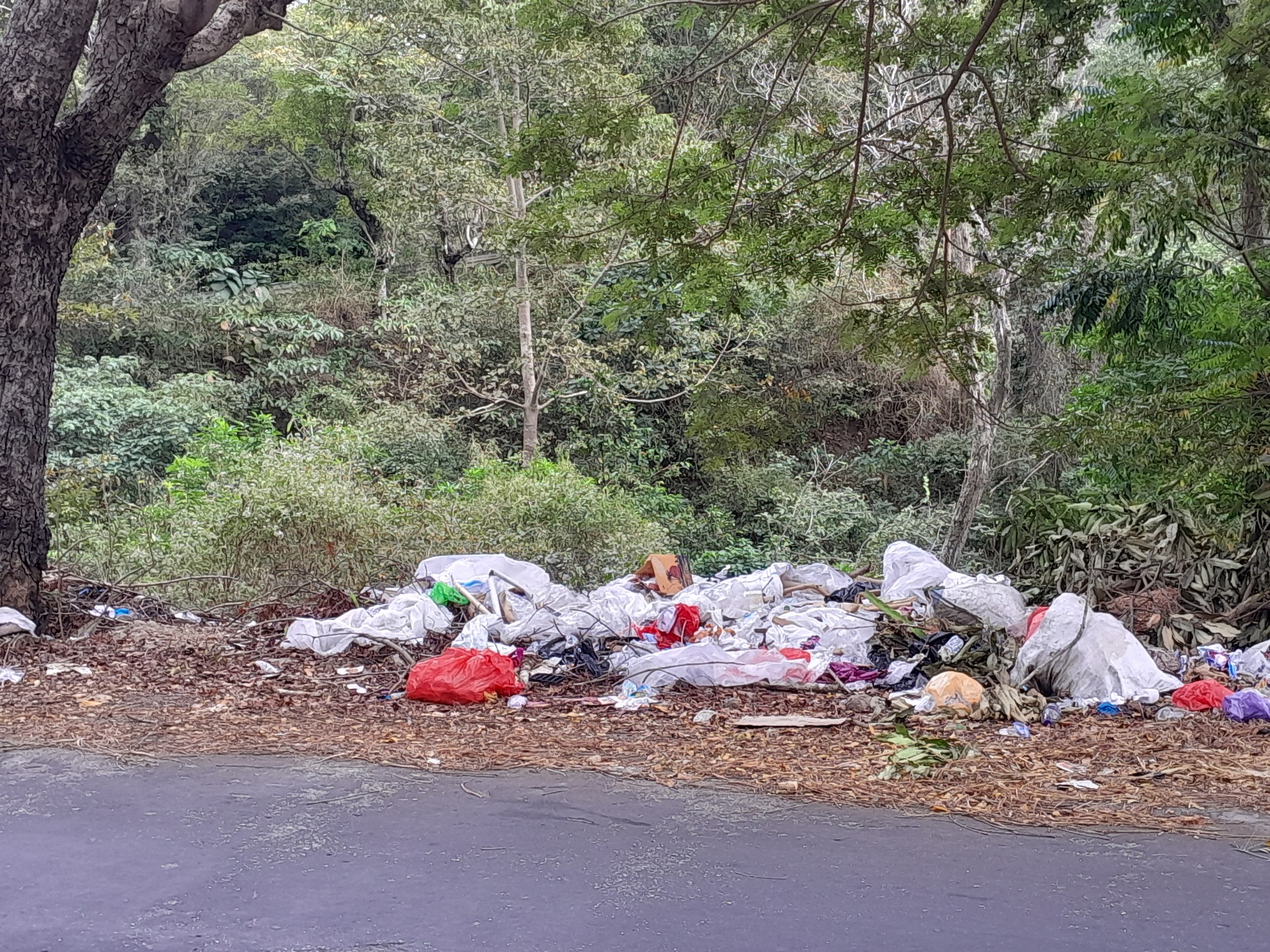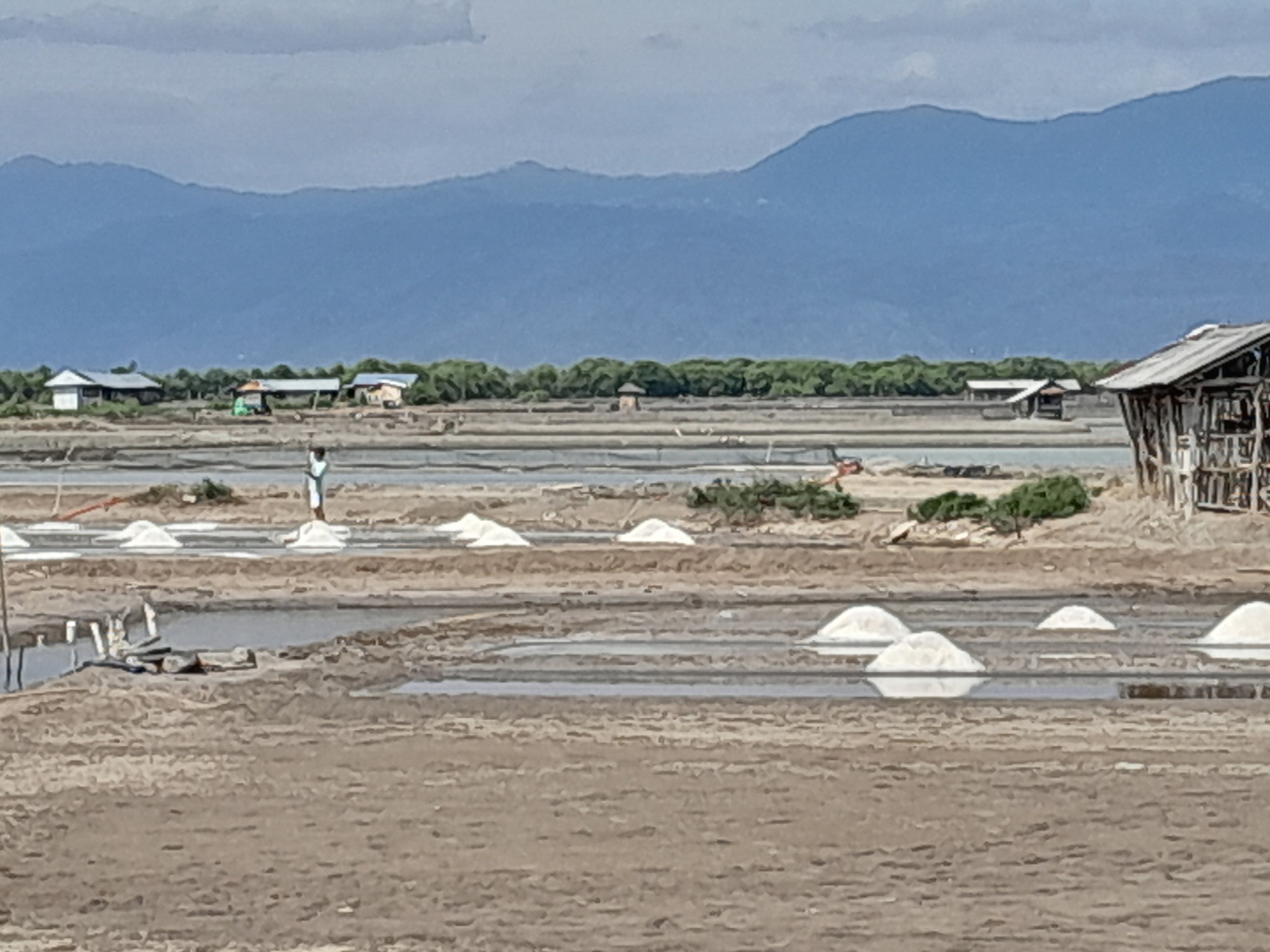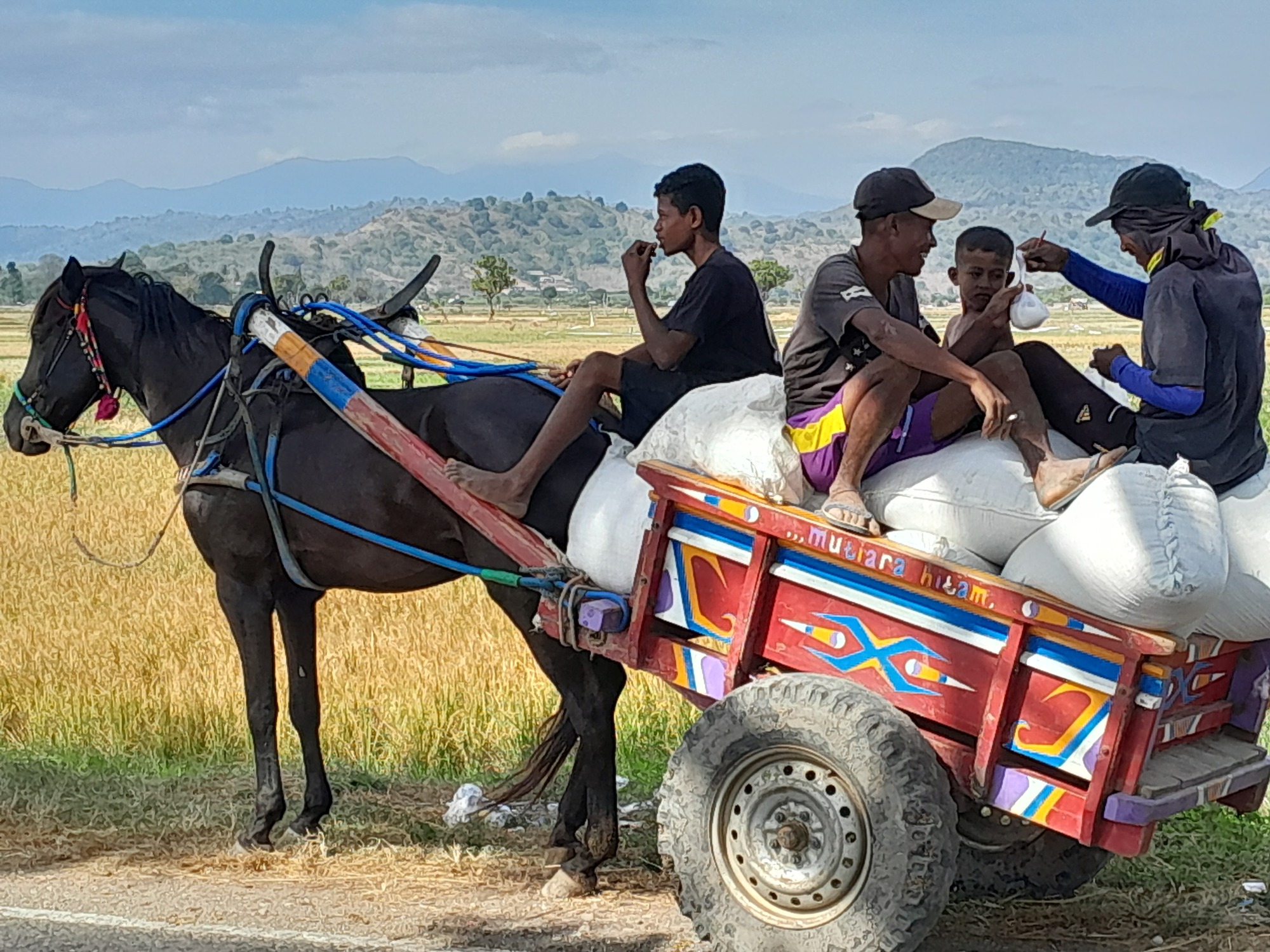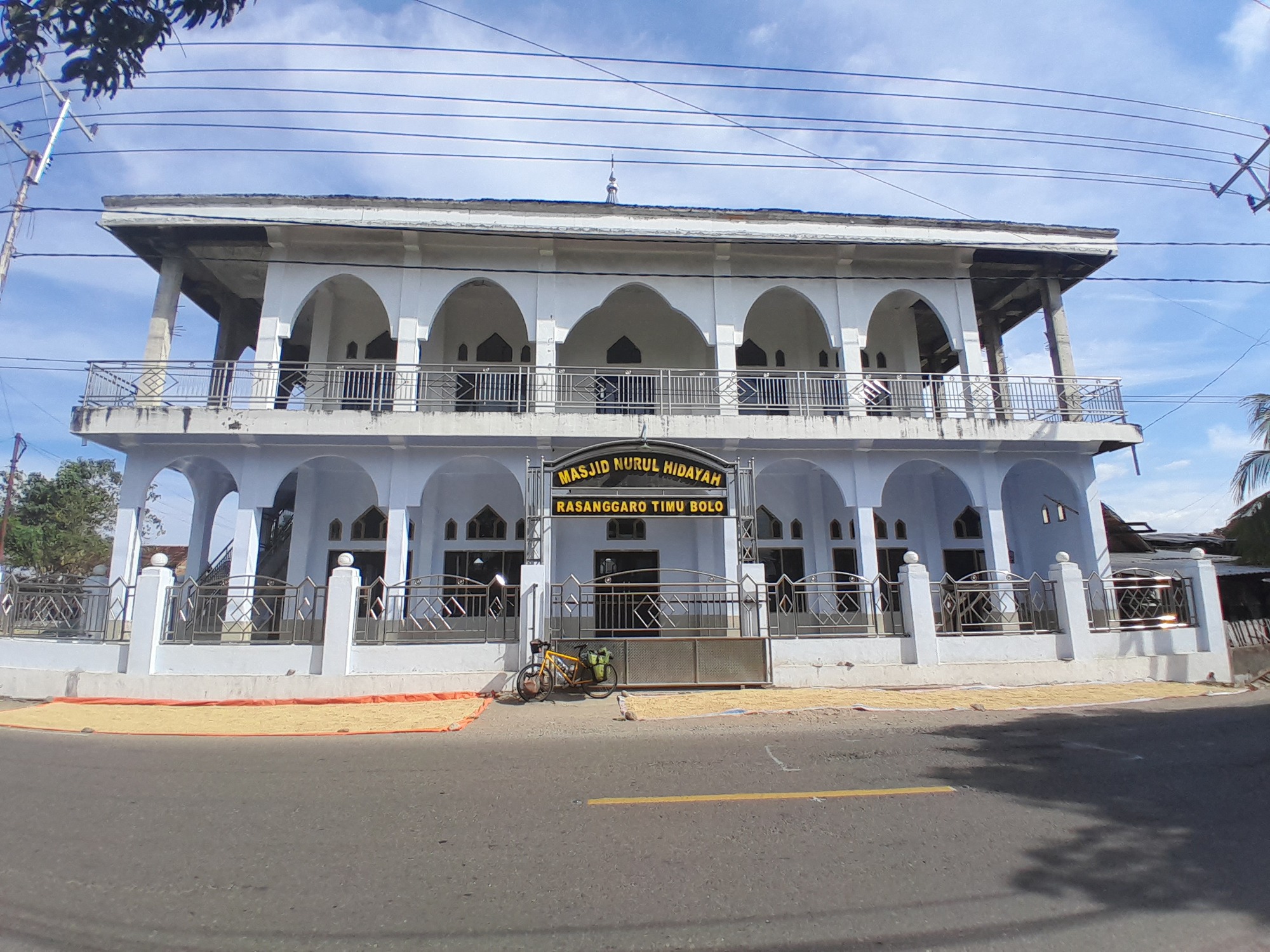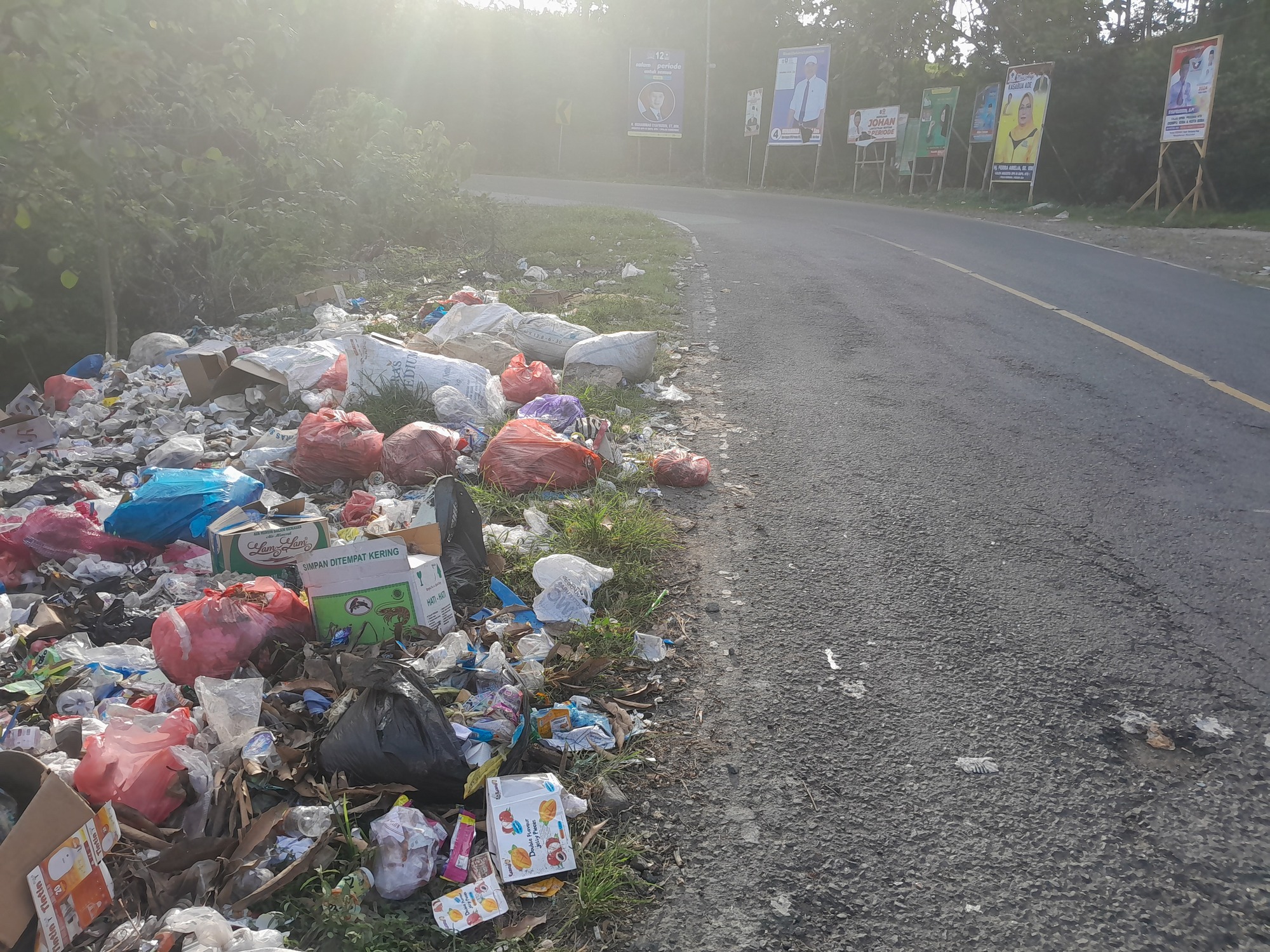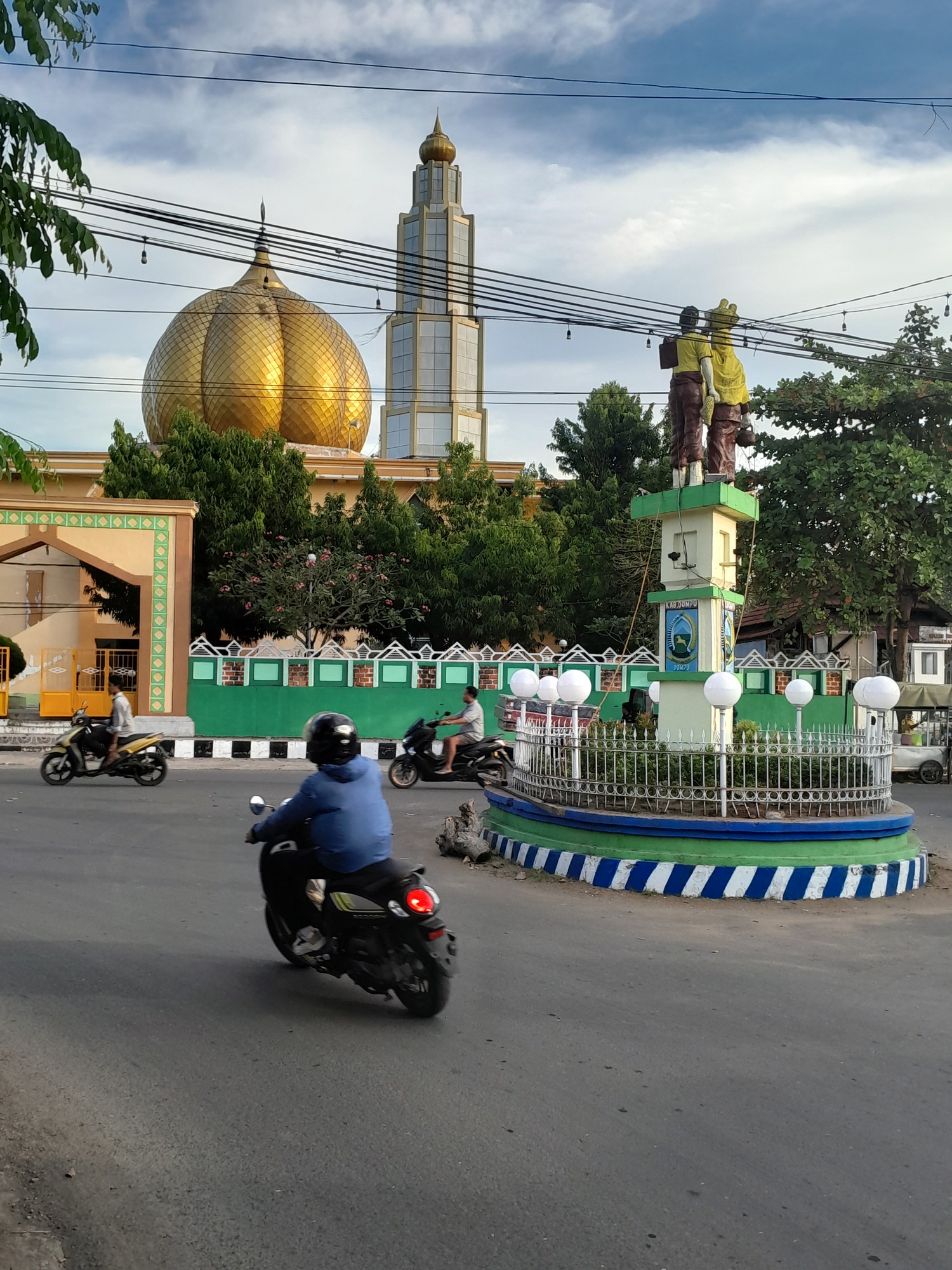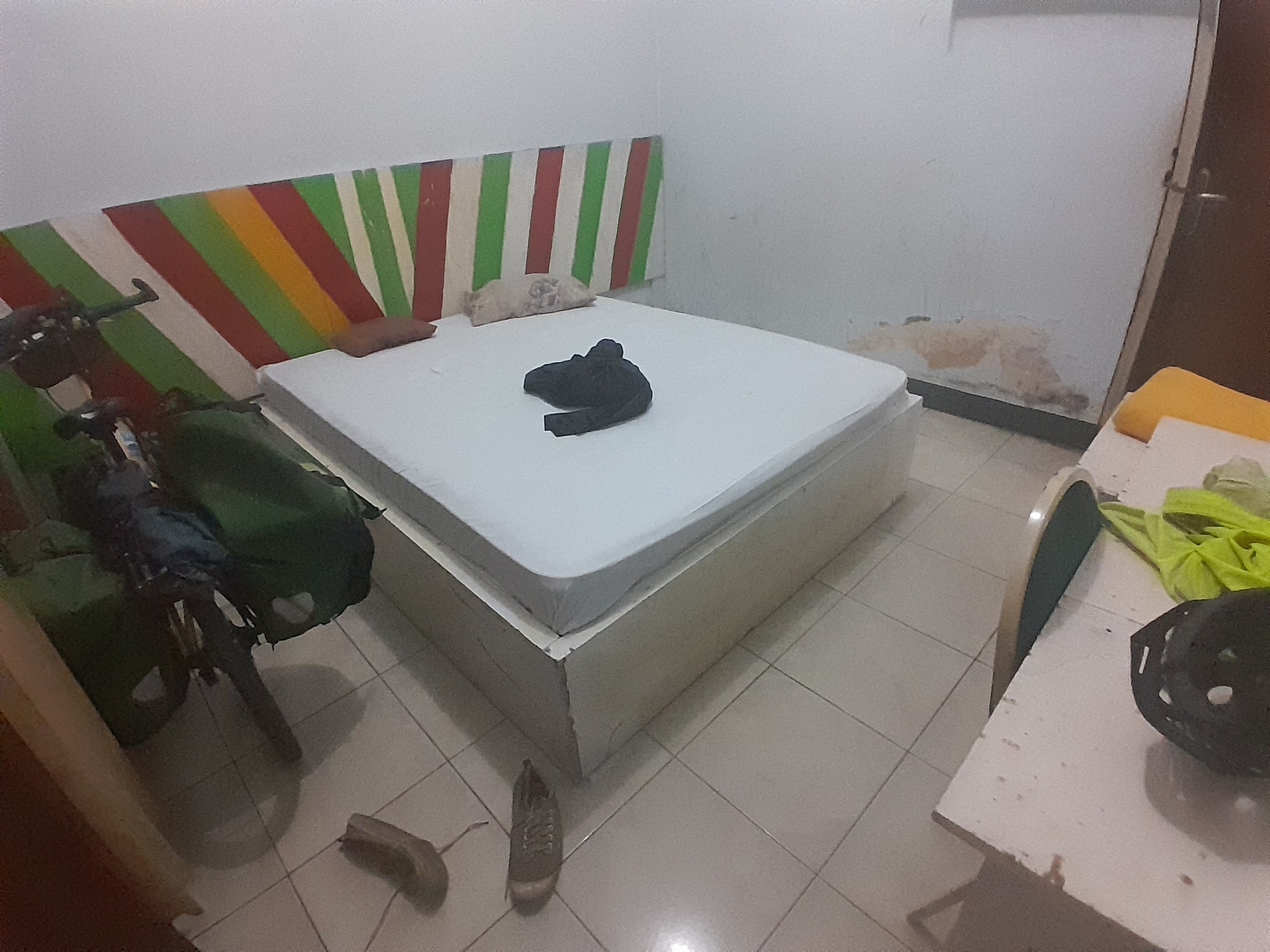July 13, 2023
Day 74 - Welcome to Sumbawa; Sape to Dompu
A fellow tourer, David, put me onto the navigational app, Komoot, that I used today for the first time. Thus, I know that in the 117 km from Sape to Dompu via Bima, I climbed 1660 m. Of course, it was 30 C and humid - right in that zone where everyone feels discomfort. Was the ride itself hard? No! Did I feel discomfort? Yes, for every km! What was the cause of my discomfort? I have just cycled through a 117 km long garbage dump. I have seen appalling garbage in Asia but nothing that will match what I saw today.
Unlike the travel guides and the travel section in the media that describe the fabulous beaches to surf and the volcanoes to climb, but never mention the garbage, I am not going to hold back. Let's start with a couple of photos.

| Heart | 2 | Comment | 0 | Link |
So, I'm a quarter of the way across a new island, Sumbawa. There are a few noticeable changes. First, the landscape differs from Flores, with more savannah. Christianity has disappeared; I did not see a church today but I saw and heard dozens of mosques. The driving is more aggressive and there are far more boy-racers on 2-stroke machines with unmuffled exhausts. They are extremely loud. I've mentioned the garbage that's much worse here than in Flores. Of interest, the population and area of Flores and Sumbawa are similar - 1.8 million and 15,000 square km. I rode the trans-Flores Highway and I'm on the highway here.
I saw a bunch of interesting things, bought food from roadside stalls, watched a fellow drag a dead dog across the road and hoik it off the edge, saw the rice harvest transported by horse and cart. I saw a lot of monkeys, most scavenging in garbage. A couple of dominant males even chased me; I moved to a sprint. I could go on, but all occurred in a sea of appalling garbage.

| Heart | 4 | Comment | 0 | Link |

| Heart | 4 | Comment | 0 | Link |

| Heart | 4 | Comment | 0 | Link |

| Heart | 4 | Comment | 0 | Link |

| Heart | 4 | Comment | 0 | Link |

| Heart | 4 | Comment | 0 | Link |
I rolled into town and found a place fitting of the day to stay.
I rode well today but did not enjoy one bit. I was angry as questions flowed through my brain. How can this situation arise in the first place? I felt guilty being here and spending money here. How can one be religious and treat the planet in this way? While the developed world wrecks the planet with invisible gases, Asia wrecks it with plastic. Everything I see will end up in the oceans.
I found it very hard cycling alone. I felt empathy with striking school students who, when they speak of mental stress caused by the destruction of the planet, cop flak from the right-wing media. I found today incredibly distressing. But, I am sure of one thing - the planet is doomed and the sooner the most destructive species ever shuffles off, the better. Should I be positive? If so, why?
Some will object to me taking this stance, but if travel writers had done it 50 years ago I may not be seeing what I am now. I do not look forward to the days ahead.
As I write, a clown on his two-stroke motorcycle roars past drowning all sounds.
Today's ride: 117 km (73 miles)
Total: 5,617 km (3,488 miles)
| Rate this entry's writing | Heart | 5 |
| Comment on this entry | Comment | 11 |
1 year ago
1 year ago
I can offer some slight reassurance from my experiences of taking leadership development groups to Java & Sumatra over a period of 7 years (2014-2019) when I met quiet a few amazing people at the forefront of environmental movements.
I learned that with the increasing size of the middle class (mostly in Java and metropolitan areas) there’s been an upwelling of environmental activism which is having a visible, but significant impact. I personally saw a few areas where change for the better was obvious over seven years. Thanks to the hard work of Indonesian environmentalists.
As many millions of Indonesians move from barely being able to survive to having modest wealth, they are realising they want a cleaner environment; and they are discovering they have the power to do something about it. Just as happened in in Europe and North America as the environmental horrors of the Industrial Age spurred environmentalism.
For example the canals of Jakarta and the Cilawang River (which flows rises near Bogor and flows through Jakarta) have improved greatly in a short time.
Obviously there is still a long way to go, but the signs are positive… in some regions.
Nusa Tengarra, and all the eastern part of the archipelago lag far behind in numerous ways. Pollution especially.
What can you do in the meantime? Just what you are doing. Raise awareness. Much better than the silence and ignorance of official tourist propaganda.
1 year ago
1 year ago
I’ll add that communicators and writers like Rachel Carson had an enormous positive impact. Education and public awareness, supported by increased individual wealth and freedom, drove real change.
The USA’s adoption of improved environmental legislation & enforcement actions happened much faster than the had happened before in UK & Europe after their decades of ecological misery caused by the holy cow of industrialisation.
My hope (perhaps forlorn) is that Asia will make that transition even faster than North America did. China despite it numerous faults, seems to be taking environmental reforms seriously, as their now huge middle class becomes less willing to suffer foul air and water.
1 year ago
1 year ago
So, Australia's garbage back then was stuff like paper, bottles, steel cans, etc. Sure, it's garbage and garbage is ugly, but paper composts, steel cans rust away and bottles are made from sand. Bottles left in the ocean give beautiful glass! As you know, if you found a large coke bottle back in those days you got 5c. And what did a Paddle Pop cost? 5c!
So, even in the 1980s a lot of food and drink in Asia came wrapped in banana leaves or in bamboo - stuff to throw on the ground and walk away. The plastic garbage now will be here forever. It will break down to microscopic particles that will be part of many life-forms. It may spend a vacation in the Pacific Garbage Patch, a 1.6 million km2 ecosystem. Yes, various organisms are colonizing it!!!
Another difference is that the world's population has more than doubled since the 1960s. Atmospheric CO2 concentration was 320 ppm in 1965 and is now 420 ppm, concentrations not seen for 3 million years. June was the world's hottest month on record. Last week was the hottest week but may be beaten this week. The ocean surface temperatures are the highest ever and the volume of antarctic ice the lowest. This is without thinking about species extinctions. I'd love to be positive but....I think the Titanic is close to the iceberg and those on the bow are saying "holy......" Ian
1 year ago
But to brighten things up the Wattles are just starting to flower!! Pedal on and safely. John & Lynn
1 year ago
1 year ago
1 year ago
